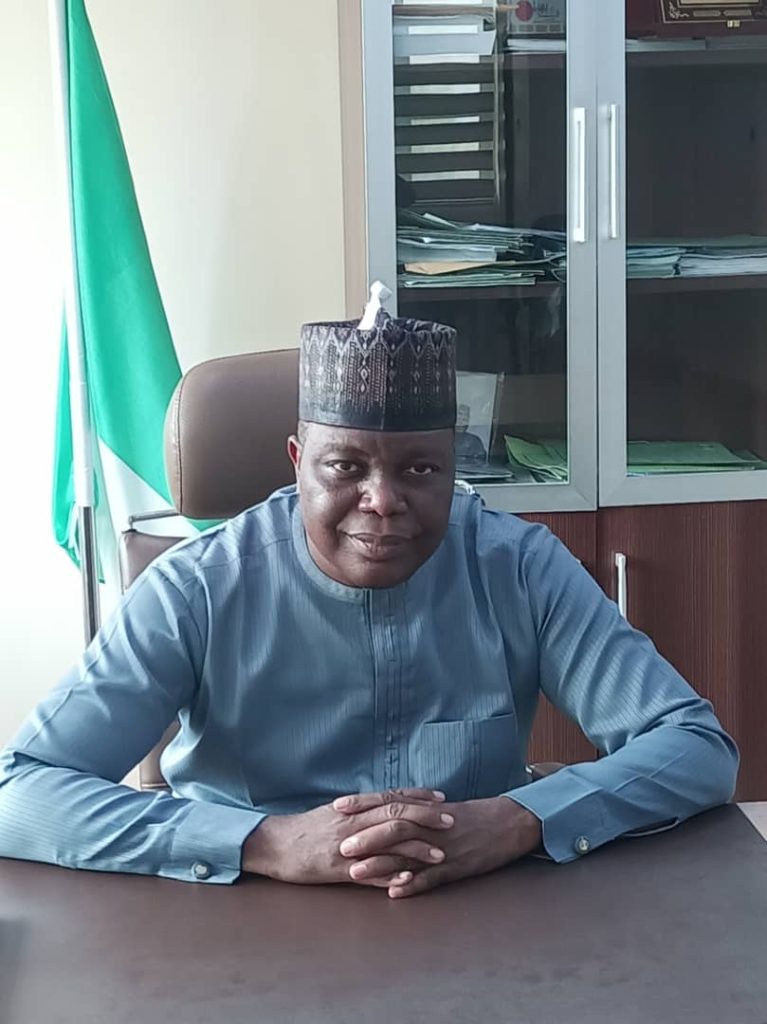
Prof. Abdullahi Mustapha, D-G, NBRDA
The Director General of the National Biotechnology Research and Development Agency(NBRDA), Prof. Abdullahi Mustapha said that the agency was against all cheap activisms over the implementation of the ephen Oronsaye’s report.
Mustapha was responding to questions from the press over the proposed merging of the National Biotechnology Development Agency(NABDA) and the National Centre for Genetic Resources and Biotechnology(NACGRAB), into National Biotechnology Research and Development Agency(NBRDA).
He said that the directive given by President Bola Tinubu for the implementation of the Oronsaye report has become one of the most discussed issues of national relevance in Nigeria.
” The report has become so popular that even those who could barely say a word about it are making public commentaries on it.
” The directive for the implementation of the recommendations contained in the report has sparked different dimensions of debates and a flurry of public commentaries with many offering suggestions on how to go about it.
“However, a few others may have taken advantage of the President’s directive as reported, to re- awaken their hatred for progressive initiatives,” he said.
The D-G noted that such was the context with which the views of a group of activists, led by Executive Director of Health of Mother Earth Foundation(HOMEF), Dr Nnimmo Bassey , about the proposed merging of the NADBA and NACGRAB was seen.
“In a recent statement through his Media/Communications Lead, Bassey labelled as dangerous, the merger of NABDA and NACGRAB.
” Bassey said the merger posed danger to Nigeria’s biosafety. “
According to Mustapha, such was also the connotation given to the president’s directive by the Deputy Executive Director of Environmental Rights Action/ Friends of the Earth, Nigeria, Mariann Bassey -Orovwuje who labelled it ‘a recipe for disaster ‘ “in the said statement.”
“Interestingly, Orovwuje proceeded with a call for the government to consider setting up a policy on agro-ecology to address food insecurity, strengthen local economy, and ensure climate change adaptation.
” As clearly depicted in their submissions, Bassey and Co have demonstrated ignorance in the process that led to where Nigeria is, that prompted the call for the Oronsaye’s report, ” he said.
The D-G stated that the president had looked at all options, and with absolute recur to the thoroughness and quality assurance process to which the Committee’s report was subjected.
Accordingly, that president Tinubu decided to do what others had failed to do by offering to give life to the recommendations of the report, considered by many as a life line in Nigeria’s search for return to greatness.
“Their call for the government to do the contrary could only be described as an attempt to play cheap activism.
” It also shows that they have not taken time to study the mandate of the agencies involved, and the renewed focus of the NABDA, as enshrined in the NABDA Act 2022,” Mustapha said.
He maintained that the Act, consisting of 36 articles, divided into seven parts, succinctly covered all aspects relating to biotechnology research and promotion for national development.
He said this was inclusive of food, agriculture, health, industry and environment.
The D-G explained that the NABDA Act has adequate provisions for encouraging capacity building in all aspects of biotechnology, promoting strategic investment in biotechnology research and development, to support innovation and economic development, ensuring sustainable utilisation of biological resources and developing novel products to improve the production of the country’s indigenous plants and animals.
He continued that the Act also promoted the exploration, collection, identification, evaluation, storage and conservation of the stock of animal, plant and microbes genetic materials.
He also mentioned the struggle against the loss of country’s crop and animal genetic resources, caused by intensive cultivation, urbanisation, grazing, desertification, pest outbreak and national catastrophes.
Dr Rose Gidado, Director, Agricultural Biotechnology department of the NBRDA, reacted that contrary to the uninformed postulations of Bassey and Co., these functions of NADBA, if merged with NACGRAD, would give Nigeria a platform with adequate room for biotechnology promotion based on international best practices.
“The implementation of the Oronsaye’s report is one thing Nigerians have wished.
“A counter view at this time is only an attempt to throw spanners in the wheels of a progressive motion set up by President Tinubu.
” For Bassey and Co travelers, the implementation of the Oronsaye’s report is way beyond the anti-GMOs agenda that have become the feed mill for agents of chemical merchants, who profit from the sale of environmentally injurious and health threatening products like chemical fertilizers, herbicides and pesticides, ” Gidado said.
The director further said that in Nigeria , these people are threatened with extinction by the advent of modern agricultural biotechnology.
The Oronsaye’s Committee report commissioned by former president Goodluck Jonathan’s administration, recommended the elimination and merger of 220 of the 541 government agencies that existed at that time.
It had also proposed reducing the number of statutory agencies from 263 to 161, abolishing 38, merging 52, and reverting 14 to departments within ministries.